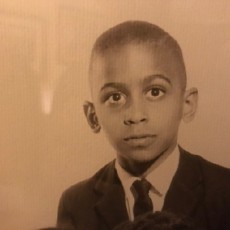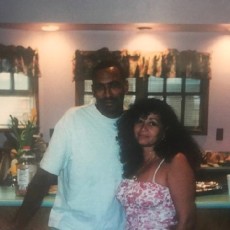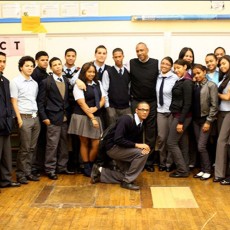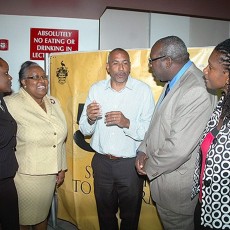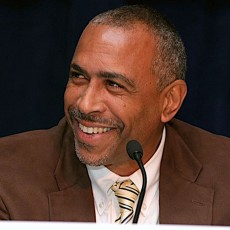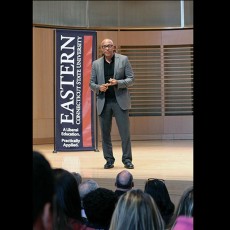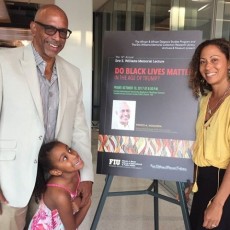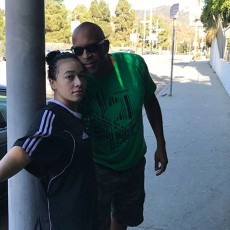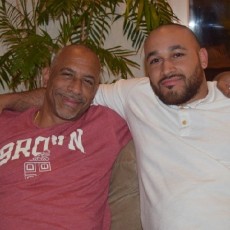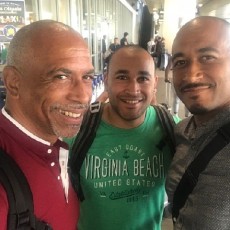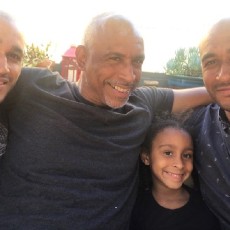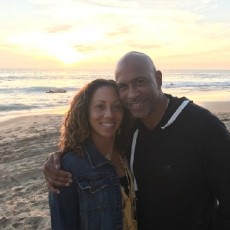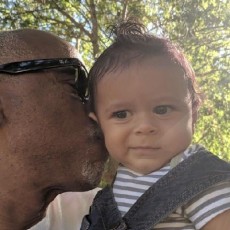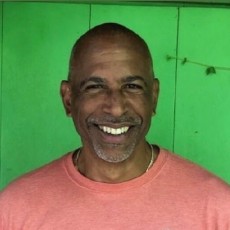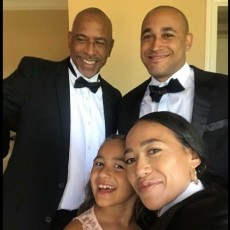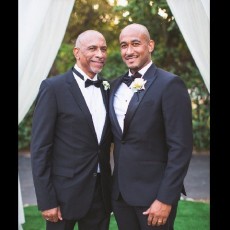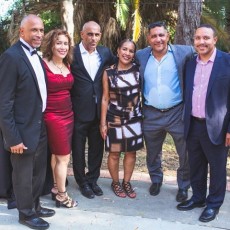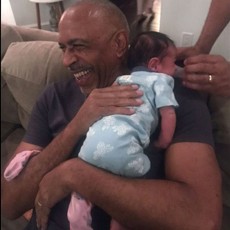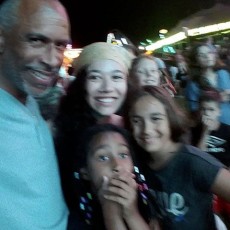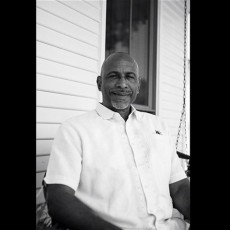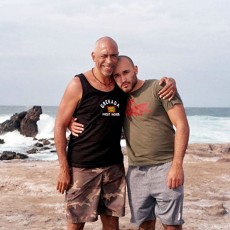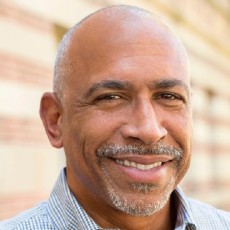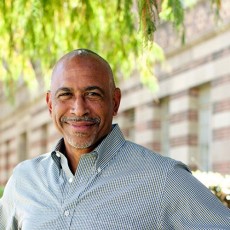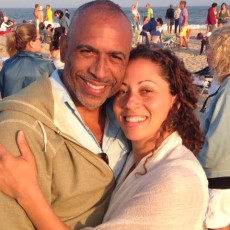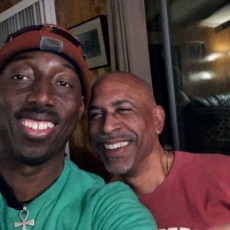Pedro Noguera
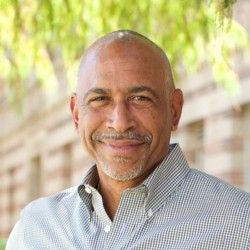
Pedro Noguera is a Distinguished Professor of Education at the Graduate School of Education and Information Studies at the University of California, Los Angeles (UCLA). Crediting his educational success in large part to his parents, both of whom were immigrants without a high school diploma, Noguera studied sociology and history, earning his bachelor’s and master’s degrees from Brown University and doctorate from the University of California (UC), Berkeley. His early experiences as a classroom teacher and graduate student engaged in community organizing and work with urban youth as well as an assistant to the Major of Berkeley helped him develop a keen understanding of the challenges facing educators. Becoming coming to UCLA, he served as a faculty member, educational researcher, and scholar at UC, Berkeley, Harvard University, Columbia University, and New York University (NYU), spending more than three decades conducting research on the impact of complex social problems and inequities on poor, marginalized children. Noguera is a member of the National Academy of Education as well as the recipient of numerous awards and honors including: UC, Berkeley Distinguished Teaching Award (1997), Hero Award for Leadership in Education (2009, Scholastic Books), Border Crosser Award for Leadership in Promoting Racial Understanding and Justice (2010), Martin Luther King Award (2012, NYU), John Dewey Award for Critical Scholarship in Education (2012), McSilver Award for Combating Poverty (2013, NYU School of Social Work), and Horace Mann Award (2015) as well as several honorary doctorates and awards for distinguished service to the field of education. As the author or editor of more than 200 articles, books, and chapters, Noguera is widely recognized for his expertise on urban school reform, conditions that promote student achievement, the role of education in community development, youth violence, and race/ethnic relations in American Society among other areas. His most recently co-authored books, Excellence through Equity: Five Principles of Courageous Leadership Guide Achievement for Every Student (2015, with Alan Blankstein) and Race, Equity, and Education: The Pursuit of Equality in Education 60 Years after Brown (2015, with Jill Pierce and Roey Ahram) highlight the impact of persistent inequities in education, calling to action educators, policymakers, and the general public to effect lasting change.
Curriculum Vitae Suggested readingsVideo #1 – “Independence with Encouragement”
Born and raised in New York City as the second of six children, Dr. Pedro Noguera credits his educational success in large part to his parents, both immigrants who never graduated from high school. He notes that they encouraged independence in their children, all of whom earned degrees from among the nation’s most prestigious colleges and universities. As a self-described “avid reader” who learned early on how to deal with the challenges of racism in integrated public schools, Dr. Noguera recalls his winding path to becoming an educator, including how he learned “teaching could be powerful.” Watch this clip to hear more from Dr. Noguera about the “power and influence of education” and critical importance of “building strong relationships” with students and the community.
Video #2 – “Hope is in the Kids”
Sharing stories from his own work alongside educators in high-need urban schools, Dr. Pedro Noguera describes their efforts to help children overcome persistent, complex social problems as barriers to learning. Once cautioned by a senior colleague about the risks of being a “scholar activist,” Dr. Noguera cites the importance of asking the right questions as an educational researcher, noting that the “first thing is to listen to the kids.” He also reflects on how he resists feelings of hopelessness, explaining that “poverty is not a learning disability” and a positive culture is critical to “create the conditions right for learning.” In this clip, learn more from Dr. Noguera about the need for flexibility, strong leadership, and a focus on building relationships to address inequities in education and close the achievement gap between poor, minoritized children and their more affluent peers.
Video #3 – So Much Yet to be Done
In this clip, Dr. Pedro Noguera challenges polices that mandate the use of standardized test results to judge teachers and schools, noting that these disproportionately stigmatize those serving the most disadvantaged children. Rather, he encourages educational researchers and scholars to “stay focused on the problems” in education and conduct impactful research that informs policymakers and changes policy in meaningful ways. Noting that there is much more to be done to remedy persistent inequities in education and society more broadly, Dr. Noguera continues to be inspired when he “sees things happen” that effect change. Watch this clip to hear more from Dr. Noguera about his goals for future research and the value of empowering others.
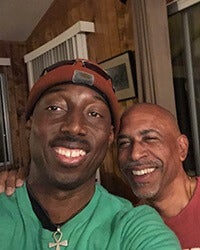
Dr. Antwi Akom
Describing Dr. Pedro Noguera as “simply amazing” in his roles as mentor, friend, and family, his former student, Dr. Antwi Akom, characterizes him as “one of the most brilliant, funny, warm, giving, loving, joyful people on the planet!” Antwi explains that “Pedro’s spirit is shining,” citing “the way he treats people” as one of his many extraordinary gifts, including his “kindness, compassion, respect, dignity, [and] love, [as well as] the way he listens to people…or at least his unique ability to make people feel like he’s really listening to them when he isn’t.” Antwi explains that people know Pedro as “this brilliant professor dude that travels all over the world sharing his brilliance and making the world a better place…and that’s an incredible, special, good thing” but adds that “what people don’t know is what happens behind the scenes.” He notes that Pedro’s discipline, drive, and determination are among “the gazillion reasons why he is one of the most successful people.” Antwi describes Pedro’s routine when he returns home from traveling as an example of his level of organization and discipline, noting that he “is the kind of person who has to unpack his suitcase right then and there…and hang everything up neatly and orderly,” even if he comes home very early in the morning. “When most of us normal people want to go to sleep,” Pedro is unpacking and getting “ready for the next day, the next challenge.” Calling to mind a saying that compares the death of an elder person to the burning of a library, Antwi likens Pedro’s mind to “a library [or] an encyclopedia on steroids.” He adds that “on the day Pedro goes to glory…they’ll have to amend the saying [since] we will lose the fountain of youth and the fountain of knowledge [because] that is how much wisdom that man has running around in his brain!” To Antwi, “the way [Pedro’s] been able to balance raising his children and his family, particularly after his first wife died of cancer, and at the same time achieve the highest level of professional accomplishment” is his most significant achievement. Recalling visits to his home, Antwi remembers having conversations with Pedro while watching him cook dinner, talk to his children, and write a book all at the same time.” He describes Pedro’s “uncanny ability and real gift to multi-task and balance the serious demands of raising five children…[while being] one of the most productive scholars in the world,” adding that he “does it all while smiling, laughing, being humble, and inspiring others.” Antwi recounts his experience visiting Grenada with Pedro as illustrative of his “super powers”—he stays rooted in the community no matter how successful he is. During their visit, Antwi recalls that government dignitaries and professors drove them around the island to visit “amazing houses…that overlook the bluest water and some of the most pristine beaches in the world” and explains that they were “treated like royalty…because everything Pedro goes he has friends and makes more friends…. He quickly becomes the mayor of every place he goes.” After they had been “wined and dined…in the astonishing homes of the rich and famous,” Antwi recounts that they drove “through dense forest and beautiful waterfalls up into green mountains” before a long walk “to an open patch of land with some shacks on it clung together with tin roofs and mud.” He recalls next “breaking bread and spending time with the poorest people in Grenada,” remembering their warm greeting with “all the love, joy, and respect of long-long family.” Although he had not visited this village in more than a decade, Antwi notes that Pedro was greeted as though he never left, explaining that he “is friends and family with Queens and Kings, Prime Ministers and Presidents, the rich and famous…[as well as] the most destitute, disenfranchised, and most vulnerable. In spite of all his success, Pedro has never forgotten where he comes from and his ability to bring people together…is another one of his super powers that continues to inspire us all.” Antwi explains that this is the essence of Pedro: “Bringing people together so we can all become more rooted in ourselves and rooted in the communities we love and care about.”
Amaya Noguera
Amaya Noguera describes her close relationship with her father, Dr. Pedro Noguera, and his profound impact on others, especially his children. Sharing that “Our Daddy” first became a father at 22 years old, Amaya reflects that she “never really got that until she became a parent at 22 as well.” She explains that “the amount of sacrifice, and discipline it took for him and their mother to both finish school, work, and take care of [her and her siblings] is commendable,” adding that “as far as she knows, he did it all with a smile on his face.” While “many people that don’t know her father well might think that he is a very serious person,” she describes him as “one of the silliest people she knows…super lighted-hearted, optimistic, with a contagious laugh,” noting that “…it is no wonder why so many people attach themselves to him.” She recalls that “from the time she was a little kid, her father would collect people, [and that he was] always making friends, and inviting people over.” Reflecting on her childhood, Amaya explains that “her father and mother created a village for her and her siblings to grow up in and be a part of.” She remembers “more than one occasion [where] she and her siblings received lots of love from random strangers because of the love they have for him.” Characterizing him as “a very generous man, [who] has given so much of himself to help others, [e]specially folks of color in higher ed[ucation],” she notes that as “the son of two immigrants, he knows first-hand what it’s like to navigate within the ivory tower, and provides support and guidance whenever called upon.” Amaya describes how special her father is to her, explaining that although “lots of people would say that about their fathers, hers truly stands apart.” She shares that she “is so grateful to be his daughter and prays that she always makes him proud.”
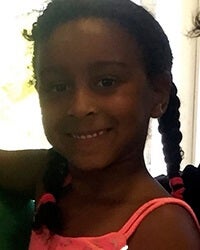
Ava Beatriz Noguera
Dr. Pedro Noguera’s young daughter, Ava Beatriz Noguera, describes one of her father’s qualities that she enjoys most, explaining that he “is my Daddy. He’s a jokester and a guy I can be silly with. He’s very funny.” Sharing one of his many jokes, she recounts the details: “So, my dad was telling me a joke and he said, ‘Knock, knock’ and I said, ‘Who’s there?’ and he said, “Knock, knock’ and I said, ‘Who’s there?’ and he said, ‘Knock, knock’ and I said, ‘Who’s there!?!’ And it just went on and on and on and on until he finally told me, ‘Knock knock’s there!’” Adding that he sometimes doses off to sleep while telling her stories at bedtime, she explains that “he’ll be talking on a topic and then he just starts to mumble words and goes ‘mumble, mumble, mumble’ and drifts off to sleep. And then you have to tap him to wake him up.” When asked to name her father’s most significant personal or professional accomplishment, Ava notes that “he halfway learned how to do her hair” and adds that he also published a book. She shares a few of the reasons she loves him so much, characterizing him in one word as “Funny!” and explaining that “he’s funny and he tells good stories.
Joaquin Noguera
Joaquin Noguera
Joaquin Noguera describes his father, Dr. Pedro Noguera, as his “oldest friend, his thinking partner and confidant, his coach and mentor.” Characterizing him as “a special human being,” he and his four siblings “cherish him dearly.” In addition to being “his first-born offspring, his son and his #1 fan,” Joaquin notes that he has “also had the pleasure of being his colleague, his critic and his research assistant.” Reflecting on his own childhood experiences, Joaquin recalls his father’s enthusiasm and encouragement, including as a “very vocal” sideline soccer coach who always “offered advice or shouted instructions…, following the action by walking up and down the sideline of the field.” Noting that they both enjoyed playing the sport, Joaquin recalls one particularly memorable game, during which “his father was talking to him from the sideline: ‘Go to the Corner, Joaquin!’ ‘Show them you’re open.’ ‘Pass, quickly!’ ‘One touch!’” He adds, “however, this particular time his father was in the wrong section; he was walking up and down the field on the side of the family and friends of the opposing team.” Recounting how his father shouted pointers as Joaquin ran down the field, passing and receiving the ball, until ultimately scoring a goal, he still remembers hearing “the roar that came from the families and friends of his team” and “looking over [to] his father [who] had a clenched fist in the air, with his mouth open.” As Joaquin’s team celebrated, he recalls there was silence on the opposing side as a few parents began to protest to the referee. One parent even yelled, “Cheater!” as his father, “still smiling, raised his shoulders and opened his hands in a plea for peace, and began the long walk to the other side of the field.” As his father approached, Joaquin remembers hearing a round of applause [from his own team] before one of their parents yelled back, “Hardly!” Joaquin explains that they “never forgot that day…[as] it is just one of many times that [his father] has had his back, offered advice that was actually useful, and angered a few people speaking truthfully in public while challenging norms, and operating in an ‘unconventional manner.’” Capturing the essence and nature of his father, Joaquin explains that he “works hard…even though he makes it look easy…consistently advocating for disenfranchised, minoritized, and oppressed people, challenging the status quo and beckoning the evolution of consciousness.” He describes his father as “a champion of social justice at all levels of scale, but particularly in education and society,” explaining that “he has been and remains a powerful voice in the world of education research and practice [who] consistently centers the needs of students and communities who most need a quality education, relating it to our vision of society and our humanity.” Joaquin explains the impact of his father’s work, which “helps people understand the ways in which society, culture and politics both shape education and schooling and are shaped by them.” Adding that he has been “impressively productive,” engaging in collaborations that are “endless” and “always for the greater good” and “deliberately working to break barriers,” Joaquin explains that his father “is a changemaker who embodies leadership, as the verb ‘lead’ comes from the Indo-European root ‘leith,’ meaning to cross a threshold.” In this way, Joaquin notes that his father “is able to enter spaces and engage individuals and communities that might not normally invest time in underserved communities, care about issues of equity, or work for social justice,” and “somehow…captivate even those audiences and compel them to reevaluate their norms and work for change.” Joaquin characterizes him as “a truthteller, a champion of good will, and a spreader of hope” as well as “hilarious, an impeccable storyteller, and ever growing and learning.” However, he explains that “most of all, he is an incredibly loving human being, with family and strangers alike.” As the second child in a family of six children, born to immigrant parents, [and] the father of five,” he is “a rock for his extended family.” Joaquin explains that “he became a father at a young age, was widowed at 46, remarried years later and remains a devoted husband. He is joy to be around and deserves all of the recognition and appreciation he receives.” Joaquin captures the sentiment of many in a public letter he wrote to his father recently for his 60th birthday:
Today is forever a special day to me and my family.
Today is the birthstrong of our Baba.
Who is our Baba? Well, he’s known for many things. He is one who has dedicated his life to making this world better, to making babies, to helping raise grand babies, spreading the good word, filling people up with hope and motivation, to building partnerships and friendships and always extending himself, making room for his ever-growing community of family and friends and comrades. He is one who does it with a smile, and even when he has to challenge, disagree or confront wrongdoing, 9 times out of 10, in the end, you say, “Thank you. Damn. I needed that. I appreciate you, Pedro…” – or Daddy.
For 60 years, my Papa has been doing this. That is 60 trips around the sun – or 20 trips, 3 times; or 30 revolutions, times 2!
Few have or will do what my father has done with 60 years on earth (a total of 21,900 days). And if you saw him doing all that I’ve described, you might miss what actually took place because he makes it look easy, because he’d do it while making you some food, cracking jokes, listening to music and asking you about your thoughts. That’s how he does. He’s a people person, and he invests himself and his life in people.
Daddy, I share these pictures and words because you’re far away right now, but if you were close, I’d just sit with you. I’d just want to be in your presence. And I guess I’m one of the luckiest people in the world because I honestly love to do just that: to not only enjoy being with my father, but to feel peace with him.
Happy birthstrong Pedro Antonio Noguera, my Daddy. I hope you enjoy today.
Joaquin Noguera
Naima Noguera
Characterizing “his voice [as] his superpower,” Naima Noguera describes her father, Dr. Pedro Noguera, as “born to speak on stage.” She notes that “his booming voice can be heard through walls—thick or thin, regardless of whether he’s wearing a mic[rophone] or not.” She adds that “nothing warms her heart more” than hearing his voice “before she walks into any office, home, or general space her father occupies.” Although she “didn’t inherit his story telling [or] movement making abilities,” Naima shares “the confidence in his approach and the passion that drives his thirst for change.” She describes her father as “the only person she knows who—amidst the speeches, flights, classes, meetings, phone calls and emails—would stop what he’s doing, even just for a moment, to address whatever you need help with.” She credits him as “the reason she’s never believed in not having time for something, because he has always made it possible.” Noting that this “isn’t a trait he reserves for his children either,” Naima recalls “family members, students and acquaintances across seas call[ing] her father for guidance and support.” She captures the sentiment of many when describing his essence and nature as “the most grounding, inspirational, optimistic and driven person she knows.”
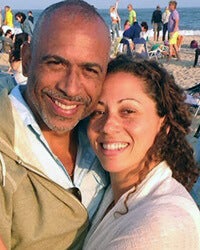
Dr. Allyson Pimentel
Characterizing her husband, Dr. Pedro Noguera, as “a gift to his family, his friends, and the world at large,” Dr. Allyson Pimentel shares that “it is an amazing experience to be his wife and life partner.” She describes family life with Pedro, their young daughter, and his four adult children and four grandchildren as filled with “so many funny memories.” Adding that Pedro is “playful and fun” with “an easy and ready laugh,” she notes that “we laugh together all the time.” Teasing that he sometimes forgets to use “volume control” at home or in an individual conversation, Allyson explains that “Pedro’s voice is naturally loud, deep, and resonate” and “he lectures so much that he is used to projecting his voice to the furthermost reaches of a room.” She now uses “several different signals…to let him know to please turn the volume down on his voice at home—a tug on the ear [or] a gesture like turning the volume down.” Also citing his ability to “pretend to listen to you when he’s actually not,” she shares that “Pedro has this way of looking at you and nodding when you are speaking that makes you think he’s listening closely. But he is actually not.” She explains that “you know this by the follow-up question he asks, which is often precisely the very thing you just finished telling him. He had no idea what you said because he wasn’t actually listening.” Yet, Allyson captures a sentiment shared by many, when describing his most significant contribution: “The way he moves through the world and what he models is an inspiration to so many people. The ripple effect reverberates wide and deep, touching and changing for the better many, many lives now and, undoubtedly, for generations to come.” She wishes she “could share the countless notes, letters, and emails that he receives from current and past students of his—or students of students of his—with testimonies speaking to the impact he has had.” Citing “his work and advocacy on behalf of students of color, immigrant students and all students [as having a] profound impact…[which] will affect generations to come and help contribute to a more peaceful, just, and loving world,” Allyson explains that Pedro “continues to thrive and shine and do his good work in the world even after the life-altering experience of losing his first wife to cancer. He provides friendship and mentoring to so many.” She captures her husband’s essence as “love and generosity,” explaining that “he is, at his very core, a loving, generous person [who] exudes warmth and vitality and life force energy,” noting that his beaming smiles makes “you feel seen, known, appreciated, and loved.” Allyson characterizes Pedro as one who “gives of himself freely with no expectation of anything in return. He sees and speaks to the highest, best part of you. That’s the part of you he relates to. He is gentle, he is funny, he makes everyone feel welcome.” She wholeheartedly agrees with his late father, who once called Pedro “a giant among men.” Characterizing him as “at once down-to-earth and larger-than-life,” Allyson explains that Pedro “thinks deeply but is light-hearted. His voice booms; he vibrates with energy and vitality; he is charismatic, kind, [and] generous.” Citing his belief in the adage, “To whom much is given, much is expected,” she describes Pedro as “grateful for the many gifts he has been given in his life,” noting that “he shares each and every one of them freely in the service of humanity. He is, in all senses, a great man.”
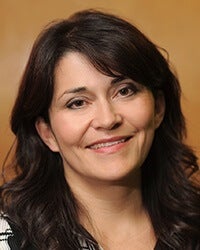
Dr. Karen Trujillo
Dr. Karen Trujillo characterizes her friend and colleague, Dr. Pedro Noguera, as “humble, brilliant, motivational, [and] honest.” While Secretary of a leadership team appointed by Governor of New Mexico Michelle Lujan Grisham, Karen recounts working with Pedro, who served as a special advisor to the team. When a few members of her team attended an event in California where he was speaking, she notes that “he invited them to his home and cooked them dinner,” adding that “they were thrilled with his hospitality.” Also citing his ability to travel light as “pretty amazing,” Karen recalls his arrival at the airport for a press conference to announce their team, noting that he carried only a backpack as luggage. Characterizing Pedro as her “brother, mentor, and friend,” Karen highlights some of his most significant accomplishments, explaining that “he speaks the truth about supporting our kids, teachers and communities. He understands it is about holistic, culturally relevant experiences for kids and he shares the truth.”
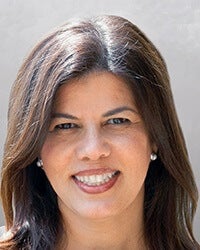
Amelia Van Name Larson
Although a long-time reader of his work, Amelia Van Name Larson shares that she has known Dr. Pedro Noguera personally and professionally through their collaboration with the American Reading Company, where he serves on the Academic Advisory Board. Recalling humorous stories from working with Pedro, she remembers attending an event a few years ago, during which he introduced his youngest daughter, Ava, to a large audience of approximately 500. Amelia explains that his then 3-year-old daughter, “who is not shy, took the mic[rophone] and proceeded to tell the audience all kinds of facts about jelly fish,” adding that “when she would not stop, Pedro had to find a way to get the mic back, and the audience burst into laughter.” On another occasion, Amelia recalls walking up to Pedro after his presentation, explaining that as she approached “one of the organizers [of the event] asked if she was his DAUGHTER!” She notes that she started to laugh and replied that she “is his LITTLE SISTER!” Reflecting on another experience with Pedro, she recounts his efforts to deliver a keynote speech after having hip surgery, noting that “the organizers had put him in a hotel that required him to walk to the event.” After walking to the exhibitor hall in the rain, Pedro was both hungry and unhappy. Amelia explains that she “brought him lunch and a beer [at a local restaurant,] and voila, he was as good as new and NAILED the keynote.” She teases that she is “thinking about a new idea for the next Budweiser commercial!” While sharing a few of her personal experiences, Amelia highlights her colleague’s many professional achievements, characterizing Pedro as “one of the country’s most important voices on education policy.” Providing context for the broader impact of Pedro’s “extensive and very influential” work, Amelia cites the words of Frederick Douglas: “For it is not light, but fire that is needed; it is not the gentle shower, but thunder. We need the storm, the whirlwind, and the earthquake. The feeling of the nation must be quickened; the conscious of the nation must be aroused. The propriety of the nation must be startled; the hypocrisy of the nation must be exposed….” Describing the enormity of Pedro’s contribution, Amelia explains that “his work brings LIGHT; however, in this field, there are many people of good will who recognize that we MUST have conversations to raise our consciousness to the issues of marginalization and inequities in our schools and classrooms.” She notes that “there is a lot of really good writing out there and really good speakers that say we NEED to do it, but we walk into districts, schools, and classrooms with thirty or more students and then WHAT?” Citing Pedro’s “ability to connect with people and bring FIRE” as his most significant professional accomplishment,” she describes how he “connects with diverse audiences—from young to old; from white to black—to help them think about HOW to get it done,” adding that he “moves them past talk to action—past LIGHT to FIRE.” Emphasizing that “the future of this country depends upon when happens in our schools,” Amelia summarizes the current outcome of schooling in America: “Today, despite the best of intentions, we still have school systems where a student’s gender, skin color, home language and family income level continue to be the predictors of who does and does not graduate from our schools with full options.” Situating Pedro’s work within this context, she carries his messages with her, including that “educators cannot do it alone, but educators and education have a critical role to present a counter-vision to the current reality.” In order to respond to his call to action, she explains that “when it comes to equity, if we only stay on the surface, NOTHING CHANGES,” and thus “we must focus on creating the right conditions for learning—the ECOSYSTEM to reach adults and children alike.”
